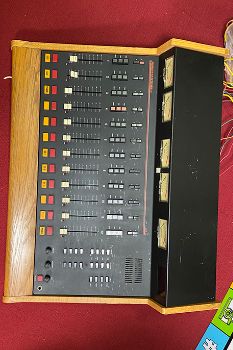On Air: Restarting the ARC

There’s a hidden room in the Dining Hall Complex. Well, not so much hidden as forgotten, tucked away behind lecture halls and cafeteria tables. It is the Arcadia Radio Station, something that has not been running since before the COVID-19 shutdown. Many arriving students, due to the circumstances, are completely unaware of its existence and function. Luckily, a few faculty members and students are dedicated to rebooting this station to become yet another outlet for students to participate in.
“Arcadia students, despite any differences in their academic journeys, have this opportunity to share a space and ideas that do not have to be about school itself.”
I am one of those students. As SGO Chancellor, it is my job to be the bridge between the university and student organizations. I have been working closely with Dr. Lisa Holderman, the chair of the Media and Communication department, and a few other students to restart the ARC. The opportunities that the radio station creates are endless. Students benefit from the chance to speak on topics that entertain and interest them; another platform to discuss university matters on; the opportunity to use the radio station as an outlet for projects and research; and the simple experience of working on a radio station alongside others different from themselves. They can do this through radio shows, approved podcasts, and interview opportunities. Anyone, from any major, is welcome to be a part of the club, so there is a wide variety of topics to be discussed.

Restarting a club can be a bit of a hassle, but since students from years ago already worked hard to get ARC approved by SGO, the process has been simplified immensely. A club that has already been established through a presentation during a Senate meeting only needs two things to be brought back: a board and revised bylaws. That’s it! On the logistical end of things, we have been making great progress in reinstating the club as an organization, but there is still a lot of work to be done to officially be on air again.
A few students with technical expertise have volunteered to check out the abandoned station to see the extent of what the shutdown has done to the space. While faculty from the Media and Communication major are assisting, most of the work is being done by students from varying majors that are interested in working with radio. We have students from public health, political sciences, and even biology interested in helping restart the ARC. Arcadia students, despite any differences in their academic journeys, have this opportunity to share a space and ideas that do not have to be about school itself.
What started out as a passion project from the Media and Communication department has become something much larger. We still have a ways to go before our work reaches the University’s ears, but starting projects such as these is another great aspect of Arcadia’s willingness to listen to students: what we want to do, what we want to achieve, and what tools we need to do so.


